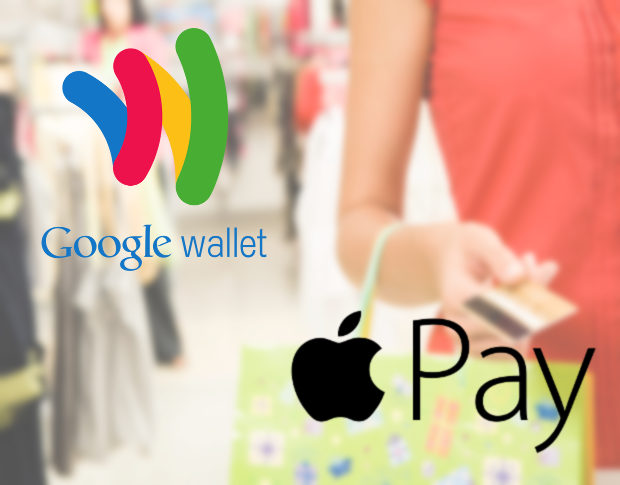Apple Pay, Google Wallet, and slow adoption

Ladies and gents, Apple has, yet again, innovated in ways that no other tech company...
Oh wait, you know how the rest of that goes. Or do you? If you're unaware, Google has had a mobile payment system, Google Wallet, in play for some time (since 2011, to be exact). Google Wallet works with some 300,000 services and is ready to serve you.
But how does it stand up to the cool kid on the block? Does Apple Pay serve consumers and businesses better than Google Wallet? Let's compare Pay and Wallet to see how they stand up.
How they work
Both systems use Near Field Communication (NFC) to send user payment information to the payment system. The biggest difference between the two is that with iOS, you simply have to hold the phone next to the NFC payment receiver to transmit the payment information (with your finger on Touch ID). With Android, you must wake the device up and enter your Wallet PIN.
At first blush, it's pretty easy to draw a simple conclusion. To those who consider security to be first and foremost, both systems offer up some pretty solid security. Even if someone steals your device, they are either going to have to have your finger (for Apple) or your PIN (for Google).
The one problem facing Wallet is that the average user doesn't want to go through those extra steps, even if said steps offer an added layer of security.
Where can you use them?
You'll be surprised to find that the comparison here is pretty similar:
Apple Pay
Close to 60 retailers (such as Aeropostale, BJ's Wholesale club, Urban Outfitters (coming soon), Bloomingdale's, Macy's, McDonald's, Panera Bread, PetSmart, Subway, Walgreens, Whole Foods)
More than 220,000 stores
Google Wallet
Any merchant with an NFC reader
Any merchant accepting MasterCard PayPass
Roughly 300,000 stores
Locate participating locations here
There is one small glitch. Because a few retailers (such as CVS, Rite Aid, and WalMart) are blocking Apple Pay, they are also, by extension, blocking Google Wallet (by shutting down their NFC readers).
Security
I've already mentioned the inclusion of Google Wallet's PIN. Beyond that, here's how security stacks up:
Apple Pay: Each card has an associated number instead of the actual card number (created when the card is added to Apple Pay). This associated number is stored on the phone and linked with the actual credit card information on the Apple Pay servers. When you hold your iPhone next to the reader, you must do so with your finger on Touch ID. If the fingerprint matches, the payment will go through.
Google Wallet: No credit card information is saved on the device (and instead on Google Wallet servers). All payments are encrypted, and Google Wallet Fraud Protection covers 100% of unauthorized transactions. When you hold the device up to the card reader, you will be required to enter your Wallet PIN. No PIN, no payment.
Why the slow adoption
This is one of the single most confusing elements to both of these services (for me). At least in the United States, consumers and business users alike have been suffering through what seems like a never-ending stream of hackers stealing credit card information. Because we use a far less secure system (no chip/PIN cards here), we're vulnerable, and our track record proves it. Both Apple Pay and Google Wallet offer a much more secure payment system than what many people currently use. So, why the hesitation?
I hate to draw such a simple conclusion, but I think that people are resistant because it's different. It requires a change in a deeply imbedded process. However, this change could go a long way in preventing theft on a grand scale.
The question I have is simple: Now that Apple Pay has been introduced, will this form of payment start to see a tidal rise in popularity? And, if that's the case, will Google Wallet enjoy a similar rise?
Both systems work and work well. Google Wallet has been around for three years and has had plenty of time to get the machine well oiled and smooth. Apple has a tendency to affect change in the habits of its users -- in ways other companies can't touch. With that in mind, I do believe businesses will see a massive growth in both methods of payment. And Android users should, in no way, feel left out. Google Wallet is an easy-to-use, secure method of payment -- one that's actually more secure than the current state of credit/debit cards in the United States.
Are you currently using Google Wallet? If not, what keeps you from adopting this form of payment? Share your opinion in the discussion thread below.
Note: This article's How they work and Security sections were updated on Nov. 11, 2014 at 10:13 AM ET.

